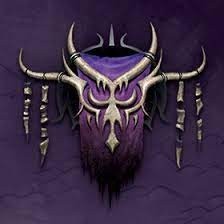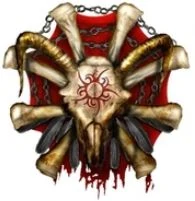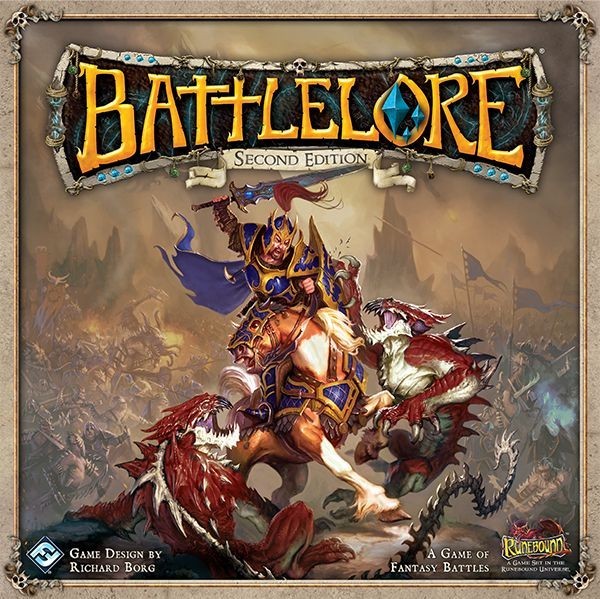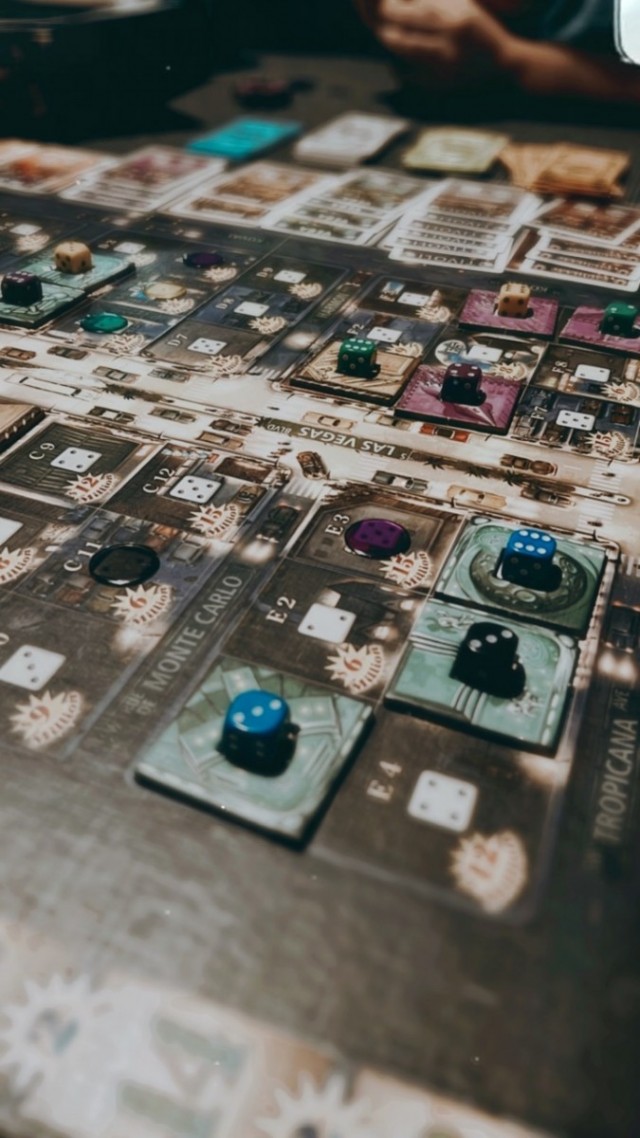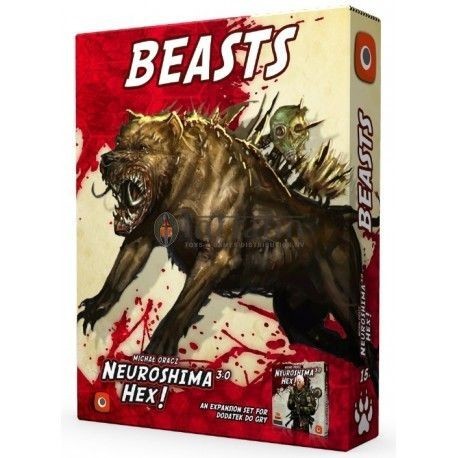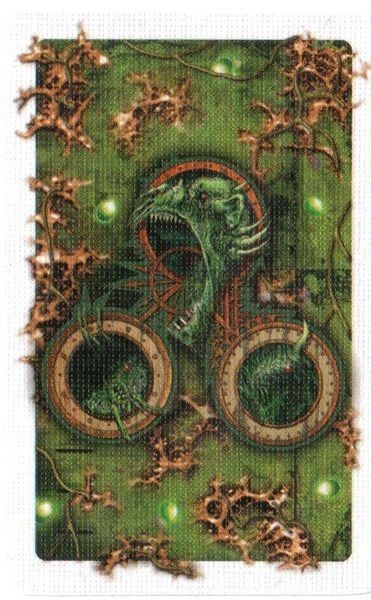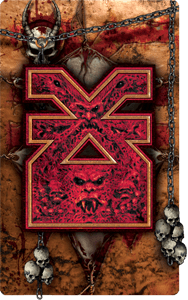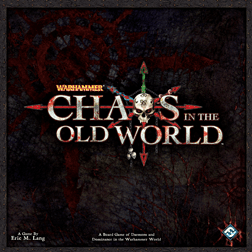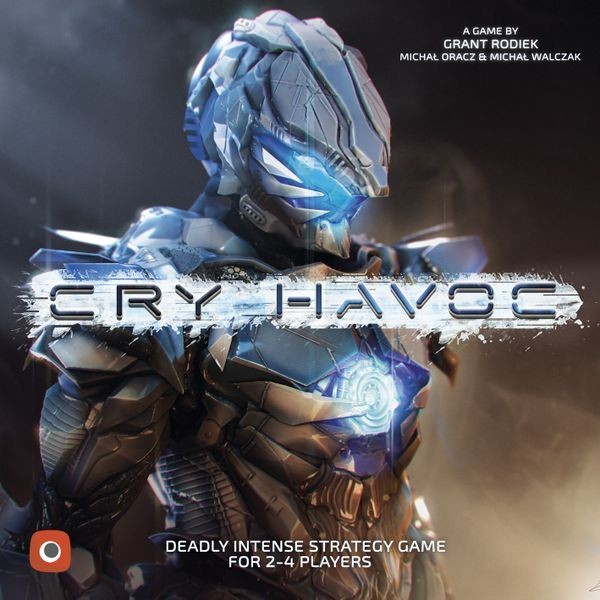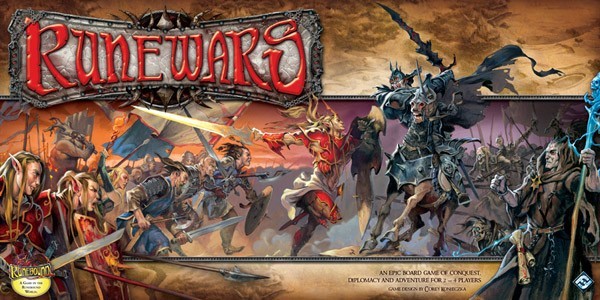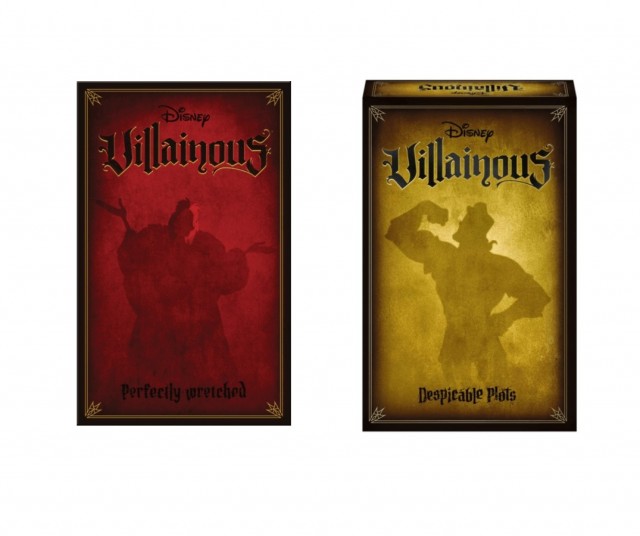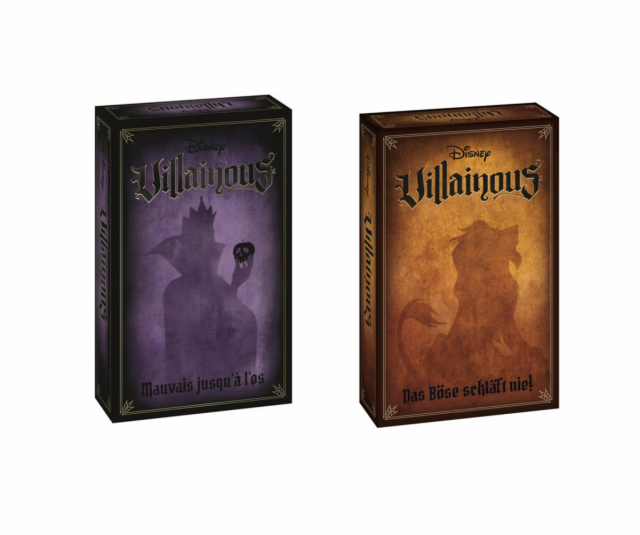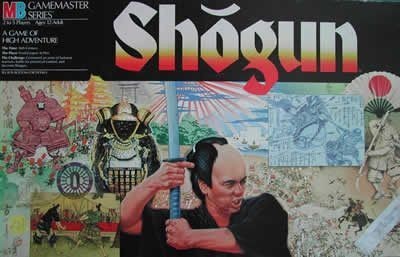The dizzying array of annoyance by the master of magic.
Tzeentch
Chaos cards: Changer of Ways x3, Dazzle x3, Drain Power x2, The Meddling of Skaven x3, The Persistence of Change x3, Teleport x4, Temporal Stasis x3, Warp Shield x3; total deck cost: 19.
Expansion Chaos cards: The Blue Scribes x2, Bolt of Change x4, Convocation x3, Glean x3, Havoc x3, Transmogrify x2, Warp Portal x2, Warpshock x3, Warpstorm x2; total deck cost: 18.
Upgrades: Acolytes, Deluge of Magic, Horrors, Lord of Change, Power of Magic
Expansion Upgrades: Acolytes, Horrors, Lord of Change, Mystical Disregard, Well of Power
Figures: 1 Lord of Change, 3 Horror Warriors, 8 Acolyte Cultists
Dial: Place 1 Warpstone; Upgrade Card; Score 3 VP; Upgrade Card; Place 2 Warpstones; Upgrade Card; Score 5 VP; Tzeentch Victory!
Now we come to the polar opposite of the example set by Khorne, as combat is frequently the lowest priority of the Changer of Ways, the Master of Fortune, the Architect of Fate... Big Bird. Seriously, the big, blue bird simply does not care about getting its talons dirty most of the time, with more Cultists than anyone but the Horned Rat and a plethora of cards that are all about manipulating the Summoning phase and pretty much ignoring the Battle phase. Obviously, you can't totally ignore the Battle phase, but you can certainly minimize its effect for both you and particular rivals. I mentioned that card play was even more important for Nurgle than Khorne. Well, card play is pretty much the ultimate expression of Tzeentch. It's all about how you manipulate your cards because of one particular extra rule that the Changer has access to. Whereas everyone else gets to draw only two Chaos cards in the Draw phase, Tzeentch gets to bring their hand back up to five, with the option of discarding one first. That encourages Big Bird to cycle through their hand as much as possible and, having a base deck with a total cost of 19 among 24 cards, they pretty much can. That, of course, means disrupting and spoiling the plans of others as much as possible, while just making sure that a couple of its eight Cultists are hovering around any available Warpstone and/or the fully half of your deck that carries magic symbols (2/3 in the expansion deck.) Even better is when you can take advantage of others' cards and punish them for treading into the province of the Master of Magic.

Tzeentch is an extreme trickster in this game and is usually the one most often approached for extracurricular deals, as the other players know (or will quickly learn) just how easily the Changer can disrupt their plans for no other reason than they want to dump their hand and draw new cards next round. It should be a common habit of Tzeentch players to be the last one in the round with any Power left, which then gives you free reign to (ahem) change the board the way you see fit. Why? Because one third of their deck costs 0 Power and another half costs only 1 Power. The downside to that, of course, is that Domination is somewhat harder to come by, but with 8 Cultists, you should be able to make up for that by pouring Corruption into the big, Populous regions and competing on the VP track in that fashion. As is lore-appropriate, that means your direct rival is often going to be Papa Nurgle. However, you can't ignore your dial, which is just as viable, if not moreso, a path to victory. Also, since Warpstone counts as Corruption, focusing on those regions where it has dropped from the sky (or been left behind by careless(?) Skaven...) is both advantageous and a way to be the controlling Ruination power in smaller territories without too much pushback. Again, as is lore-appropriate, Tzeentch may be the most flexible of the factions in the game and it's a good Bird player who plays into that flexibility.

Figures and Upgrades
Like Slaanesh and the Horned Rat, Tzeentch benefits from 2 defense Warriors, albeit also like them in that there's only three of them. They're also mildly hampered by their Lord of Change having only 2 defense, as well, which means that it can be easily removed by a single Bloodletter, unlike any of the others. However, given Tzeentch's propensity for movement and general desire to avoid combat, that's less of a problem than you might think. Interestingly, one of the best of the upgrades is, in fact, the one for Horrors, since it lets you continue your reign of annoyance and disruption by freezing a card slot as long as it sticks around. The Acolytes upgrade is also in-theme, as it once again emphasizes Tzeentch's movement capability and ability to reorient its focus, especially when there's no one else left to act in the round. Likewise, giving your Lord two automatic magic symbols can make it that much easier to jump ahead on advancement tokens and is probably the strongest case for spending Power on Big Bird in the first place. On the other hand, neither Power of Magic nor Deluge of Magic are particularly compelling. As noted, with the cheap cost of your Chaos deck and regular use of Drain Magic, you should not have Power issues. Similarly, already drawing to five cards each turn is usually advantage enough. You're often better off updating your dudes than taking a general improvement. That said, there's nothing negative about either of them, so if you think you can take advantage (and you almost always can), they're there to be taken.
In contrast, the expansion upgrades are a little less whelming, as it were. Again, 2/3 of your deck has magic symbols, so it's fairly easy to take advantage of the Horrors upgrade and get yourself free dudes for playing a low-cost card, which is a way to assert Domination. Another way to do so is with the Acolytes upgrade, but that also entails keeping cards in hand to save your Acolytes and it can only be used once per Battle phase, which is quite situational. Similarly, summoning a Lord and dropping in a free Warpstone isn't bad, per se, but it's also not necessarily a great expense of three Power and compares poorly with the automatic dial tick that the base game upgrade represents. Mystical Disregard can be amazing and continues Tzeentch's disruption theme, not only playing your card in an otherwise unattainable slot but canceling out an opponent's plan. But keep in mind that several of your opponents' really good cards may exceed the cost of anything in your deck and be untargetable by this upgrade. Well of Power may be the best option of the five, since it not only lets you cycle your deck (As any M: TG player will tell you, you should never be afraid to discard and draw for something better.) but also lets you perform a delaying action that, again, will frequently leave you at the end of the round without having revealed your intentions to your opponents and, thus, have the liberty to change things the way you see fit.
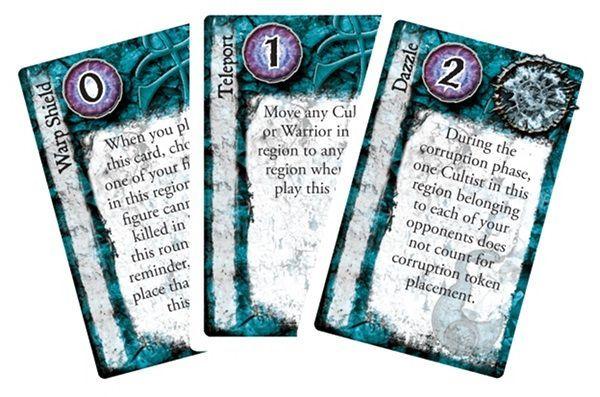
Chaos cards
Here lies the power of the Architect of Fate. With the cheapest deck cost in the game, card play is job one for Tzeentch. Truth be told, your opponents will learn to hate you because of most of your cards, but two of them in particular tend to stand out: Drain Power and Temporal Stasis. Nothing wrecks a carefully mapped out round better than Drain Power. With the Power economy as tight as it is, losing what is normally 1/6 of your resources and seeing someone else gain them is enormously aggravating. Still in that vein, Stasis often simply locks out opponents from a particular region, as the cost is usually just too great to persist in contesting it. That's an easy way for Tzeentch to take the top Ruination score, in addition to protecting itself from the Blood God. Another in that sphere is Dazzle, which targets all opponents and can easily shift a contest of Corruption in your direction. It's the most expensive card in your deck, but the inclusion of a magic symbol somewhat makes up for that. Changer of Ways is a close second to the top tier in annoyance value, especially if it wipes out the effect of an expensive card that an opponent (read: Nurgle) has just played. They'll still get the Domination value, but nothing else from a significant expenditure of Power. Just as crushing can be The Meddling of Skaven. You're the only player who can refill their hand at the end of every round, so making an opponent dump two cards is a significant blow. But the most versatile card of the deck is easily Teleport. Need to remove an annoying Bloodletter? Done. Want to send a Cultist across the map without concern for adjacency? Done. Want to move a Leper to a non-Populous region or a Seductress to a non-Noble region, making them effectively useless unless your opponent wants to spend the Power to move them back? Done. Teleport only being 1 Power seems almost criminal. In contrast, the one somewhat weak card in the deck is The Persistence of Change, since combat is a low priority for you and retaining a 1 Power card isn't hugely advantageous. That said, it does have a magic symbol, which is advantageous if you're retaining it in a region with Warpstone. It also locks out a card slot for your opponents, which can frequently have a significant effect.
Expansion Chaos cards
Again, with the cheapest deck in the expansion (even cheaper than the base deck!), card play is everything. However, this deck is a bit more scattered than the base game's, with nine different cards instead of eight, and a higher number of cards restricted to just two copies. There's also somewhat less of an annoyance factor, as there's nothing quite as devastating as Drain Power or Changer of Ways. But there's just as much of an emphasis on the Bird's movement abilities, with the best by far being Convocation. Moving three figures from anywhere to a region with a magic symbol on the card for just 1 Power is excellent. Similarly, Glean making a region adjacent to all others (again with a magic symbol) is just begging to have it invaded by Acolytes in short order. However, this applies to everyone, so the invasion may be larger than you expect and multicolored, at that. Warp Portal does a stand-in for Teleport, with the same effect but at a somewhat greater cost, since you have to discard a card, even though you're not paying Power for Portal. It, again, does come with a magic symbol to compensate somewhat. There's a significantly greater emphasis on combat in this deck, though, with Warpstorm, Havoc, and Transmogrify targeting that phase of the game. Warpstorm is rather situational, but is also 0 cost and with a symbol. Havoc can totally disrupt anyone's combat plans (read: Khorne) but keep a sharp eye on the Corruption total in the region where it's played. Transmogrify can be a great way to clean out Cultists that you don't want messing with your Ruination plans, while Bolt of Change is clearly targeted at swapping Bloodletters for Bloodsworn, especially without the base game upgrade for the Blood God's Cultists available. Warpshock has a similar effect to Transmogrify in addressing the occasional Domination weakness of Tzeentch. But the most unusual card in the deck is definitely The Blue Scribes, since it engages an even more thoughtful approach by the Changer, as you'll have to weigh the value of each player's Corruption tokens and the effect of their relocation and only to where you already have a card with a magic symbol.

Tzeentch can achieve often-stunning flexibility and versatility in a game already highlighted by those properties in the portfolio of every faction. The Master of Fortune will have serious impact on exactly that for each opponent with every card played. With the ability to clear space and gain multiple dial advancement tokens, it's not hard to see Warpstone regularly sprouting across the world and making it even easier to jump forward. Similarly, I've won more than one game as Big Bird by getting a dial tick to the 5 VP slot and just getting over the edge of 50 for a VP win with a dial advancement, as only the Rat shares that sizable late burst of points on its dial. The objective for Tzeentch is to delay and disrupt and hopefully do so while the board is their oyster when everyone else has exhausted their Power and can only look on in resignation at the, um, changes that are taking place that they can do nothing about. An experienced Tzeentch player can be truly devastating... but, of course, so can our next entry in the series, my personal favorite, the Prince of Pleasure.
 Games
Games How to resolve AdBlock issue?
How to resolve AdBlock issue? 